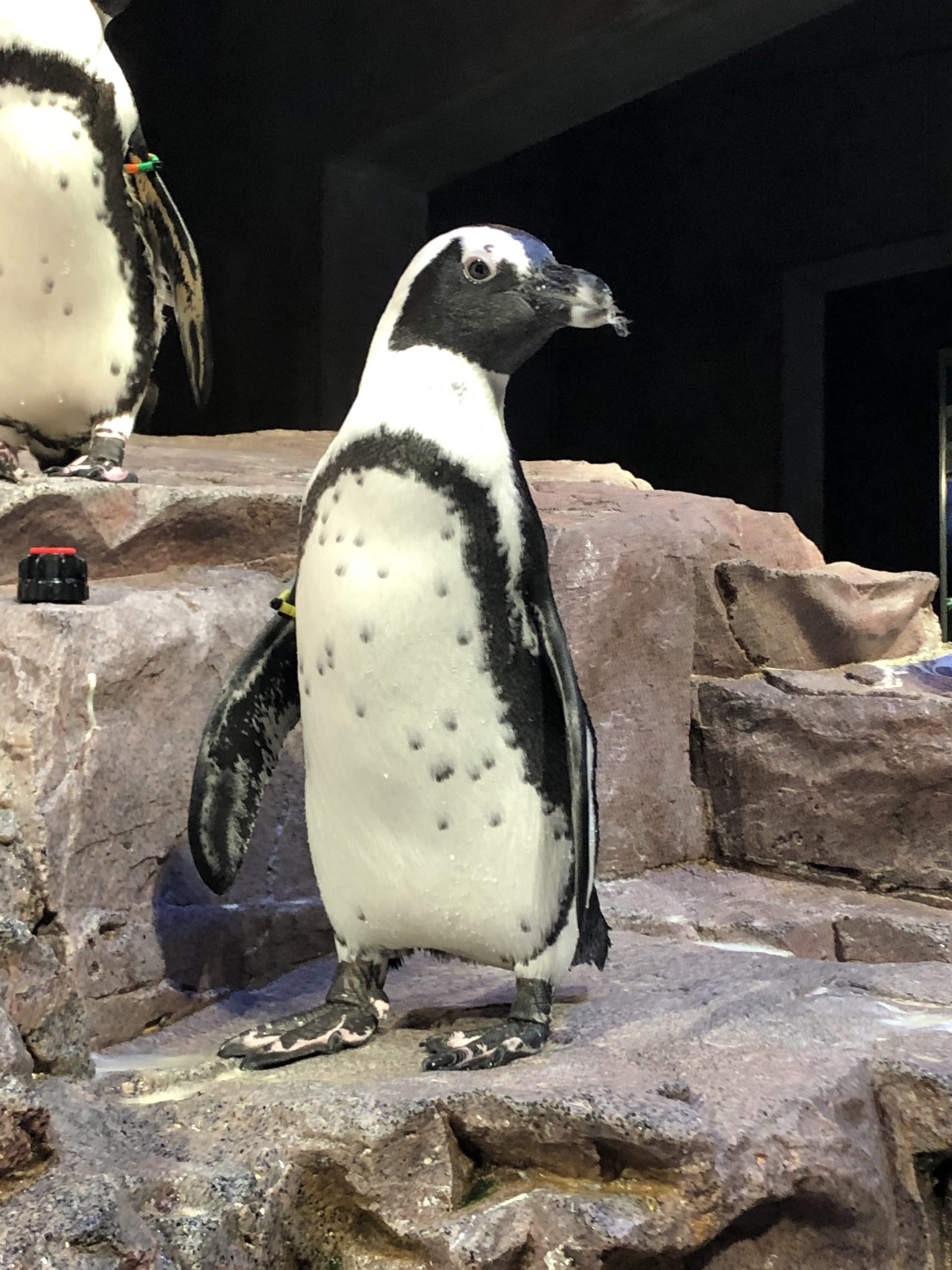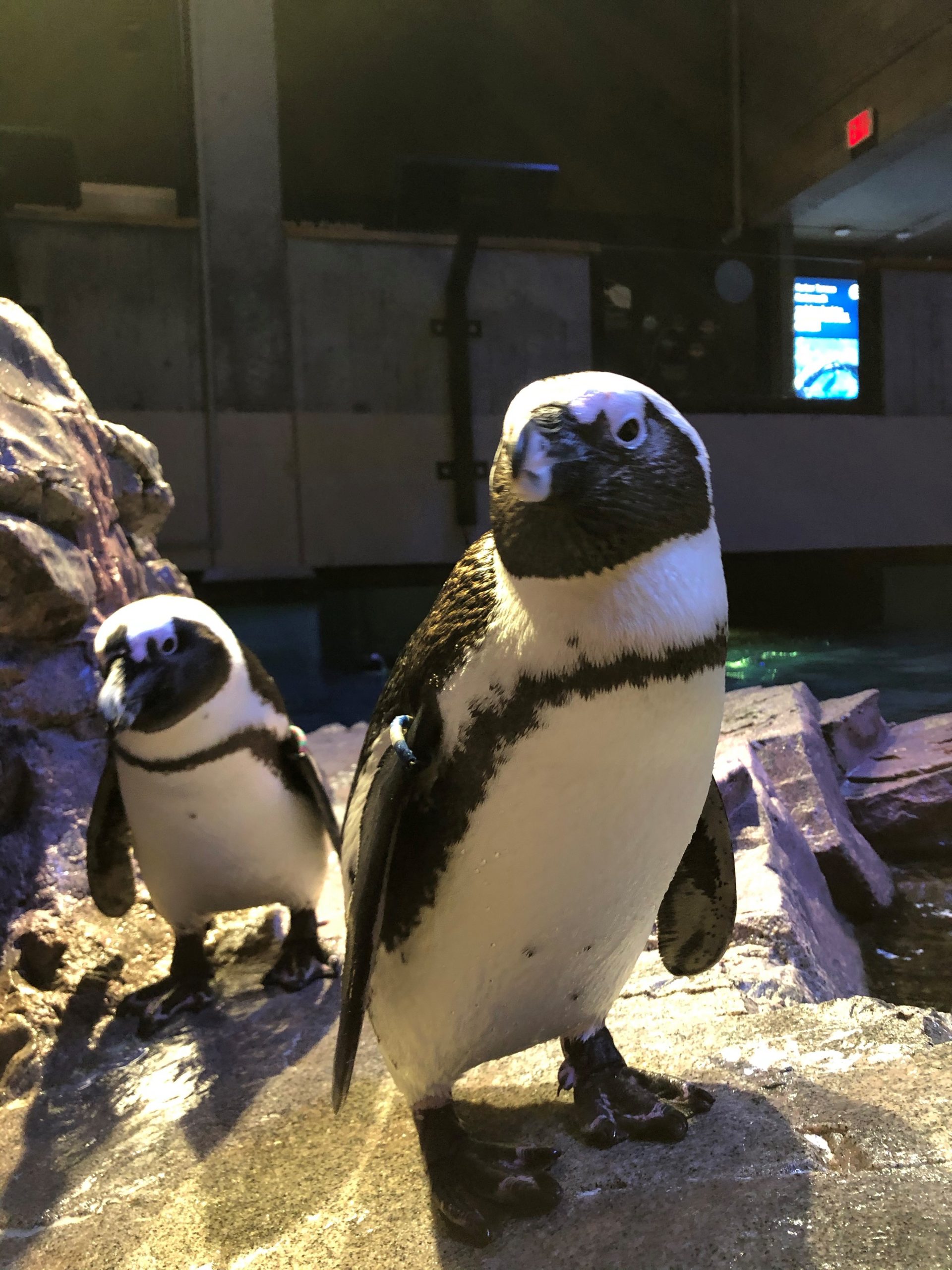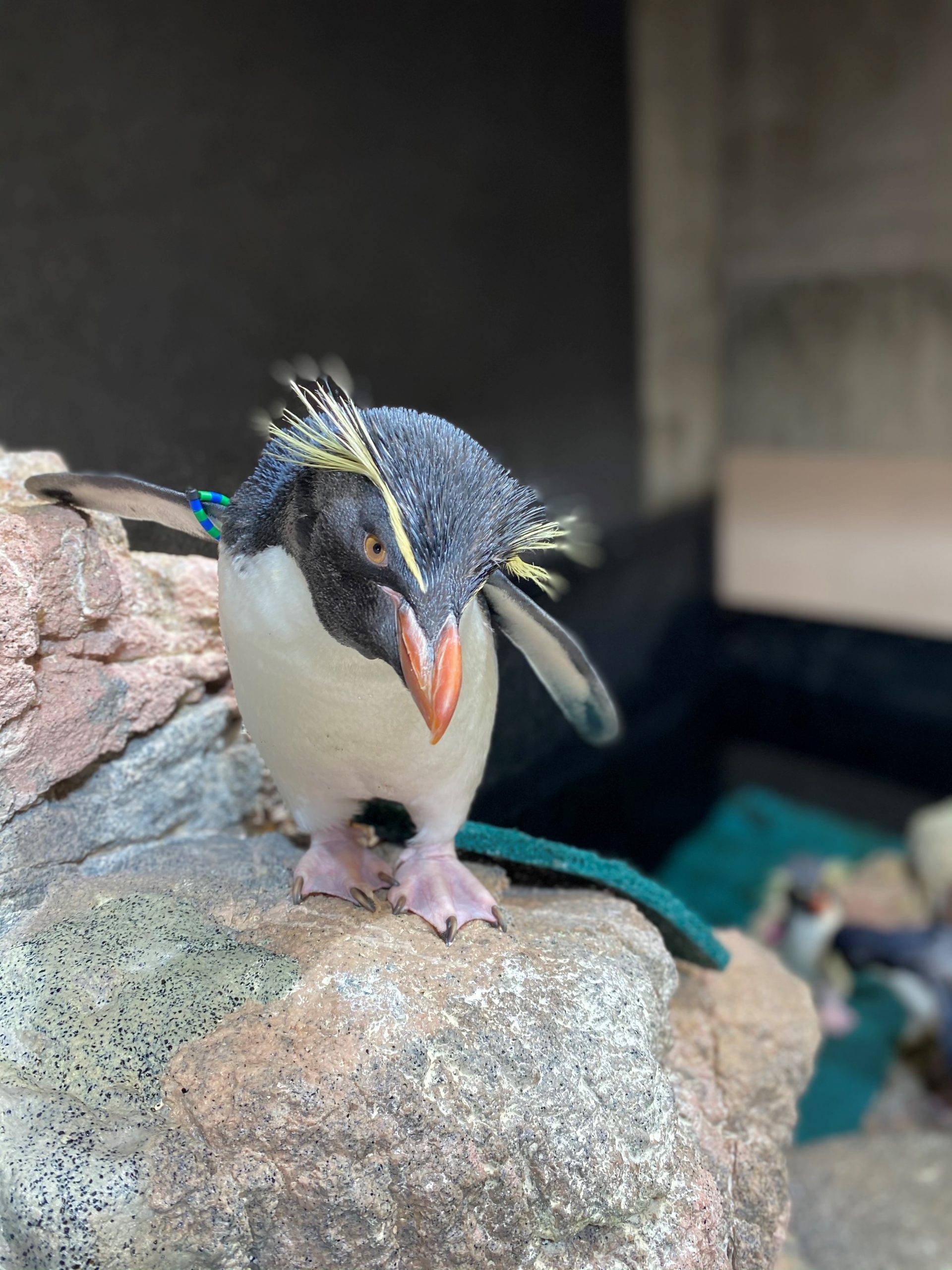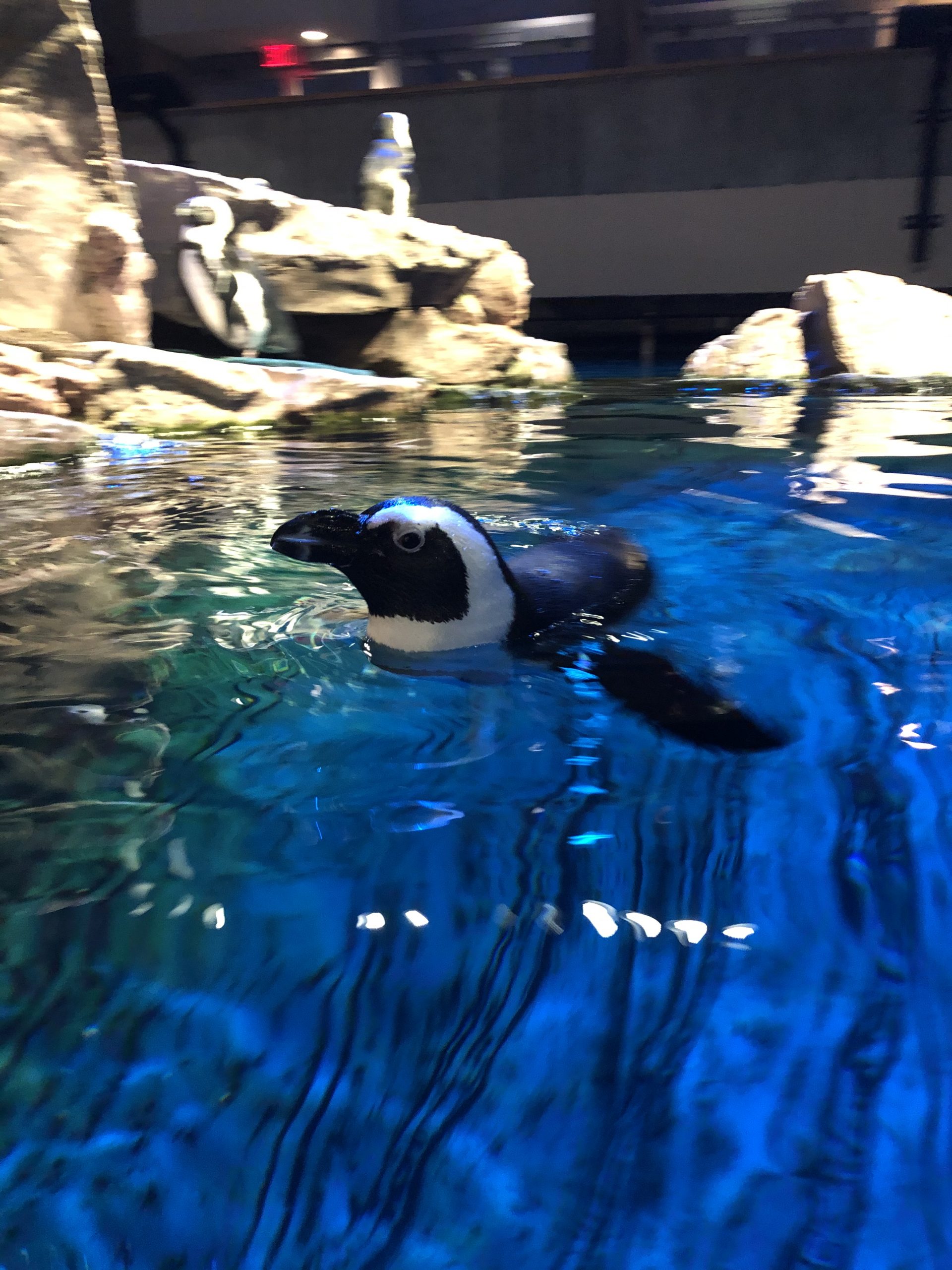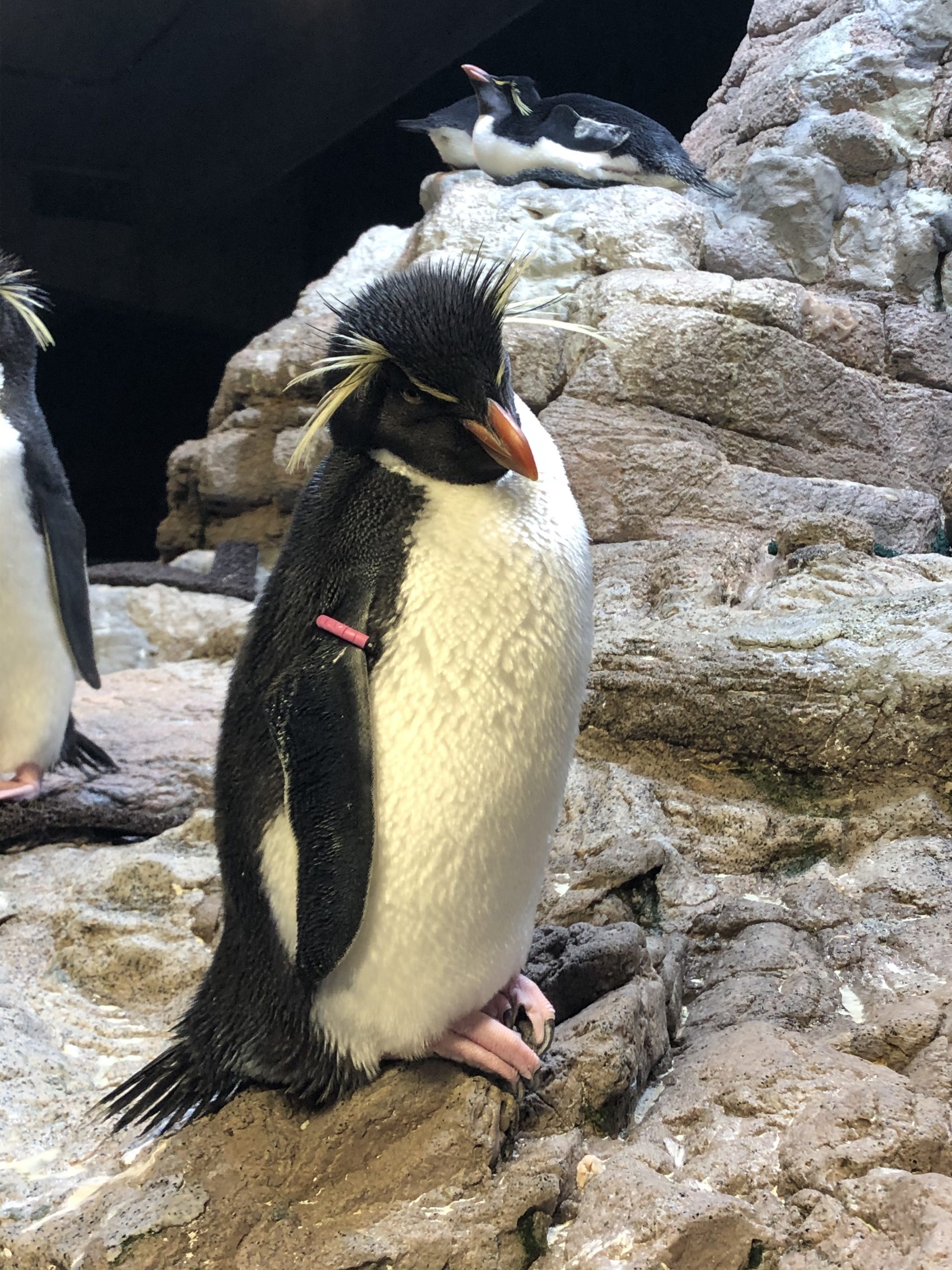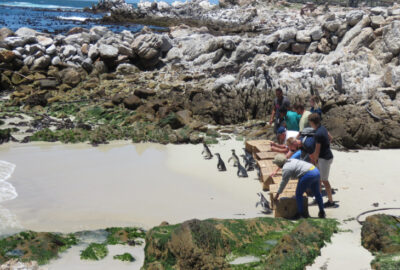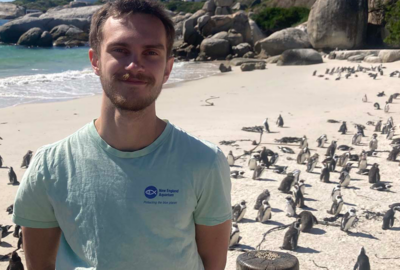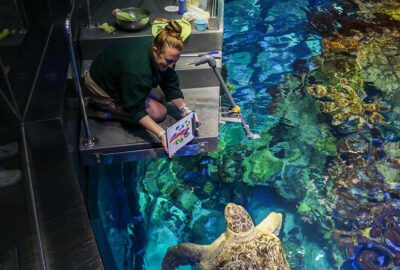Penguin Awareness Day: Meet Some Penguins
By New England Aquarium on Tuesday, January 19, 2021


The New England Aquarium’s penguin exhibit is home to more than 70 African and southern rockhopper penguins. In honor of Penguin Awareness Day on January 20, 2021, we’d like to introduce you to a few of those penguins. Learn more about each of these individuals and where they get their unique names.
For live views of our African penguins, check out our Penguin Colony Webcam.
Chrysanthi
BY BRENDAN D., PENGUIN AQUARIST
The African penguin Chrysanthi will be turning two on May 14, 2021. She recently underwent her first catastrophic molt, growing in her new adult feathers to replace the juvenile feathers she has had for over a year. Penguin staff were excited to see a small “C” pattern right above her right eye, along with a few other distinct spots on her chest.
Chrysanthi is named after the ship “MV Chrysanthi” that spilled approximately 100 gallons of oil while refueling in Algoa Bay, South Africa, in July 2019. About 100 African penguins were affected—13 of which were African penguin chicks—and admitted to the Southern African Foundation for the Conservation of Coastal Birds (SANCCOB). Two of the chicks did not survive, nor did five penguin eggs they tried to save. Though this was a small spill, it still shows that even a small spill can have lasting effects on the species and future generations of that species.
AEWA
BY BRENDAN D., PENGUIN AQUARIST
AEWA is a very calm and sweet African penguin, and often sees multiple mates depending on the day or island she is on. She loves to eat capelin, but does not like sardines very much. She will be turning 10 on June 4, 2021.
AEWA is named after the African-Eurasian Waterbird Agreement, an intergovernmental treaty dedicated to the conservation of migratory water birds and their habitats across Africa, Europe, the Middle East, Greenland, and the Canadian Archipelago. AEWA covers 255 species of birds, who at one point in their annual cycle will cross international boundaries. This includes African Penguins, who require good quality habitats for breeding and to allow them to hunt for fish offshore.
Pinguino II
BY AMANDA B., PENGUIN AQUARIST
Pinguino II is one of our more laid back southern rockhopper penguins who prefers to stay on the outskirts instead of getting involved in all the drama. Her current mate is Diego II and they have claimed the elite territory on the very top of our rockhopper’s island. Pinguino just turned 12 years old in December and she has been at the New England Aquarium since 2009.
Pinguino is Spanish for penguin, but it is also the name of a small breeding island of the coast of Chile. Southern rockhopper penguins are currently listed as threatened, and it is estimated that their population has decreased in size about 30 percent in the past 30 years.
Benguela III
BY AMANDA B., PENGUIN AQUARIST
Meet Benguela III! Benguela III hatched at the New England Aquarium in 2001 and he will turn 20 this coming May. Benguela is a very faithful penguin to his mate DeHoop and they raised two chicks together in 2018. He also reared seven other chicks prior to that with other mates. Benguela is a very motivated penguin who definitely likes to eat! You won’t find him missing out on a feed, even when it’s less desirable fish like sardines. Outside of feeding time, Benguela likes to stay close to home and defend his territory with De Hoop.
Benguela is named after the Benguela Current, which is a cold-water current that runs up the western coast of Africa and brings cold nutrient rich water that is full of fish and perfect for hunting. As climate change increases, water currents such as the Benguela Current are moving farther away from the coasts and making it harder for penguins to be able to get food, as they need to travel much farther distances.
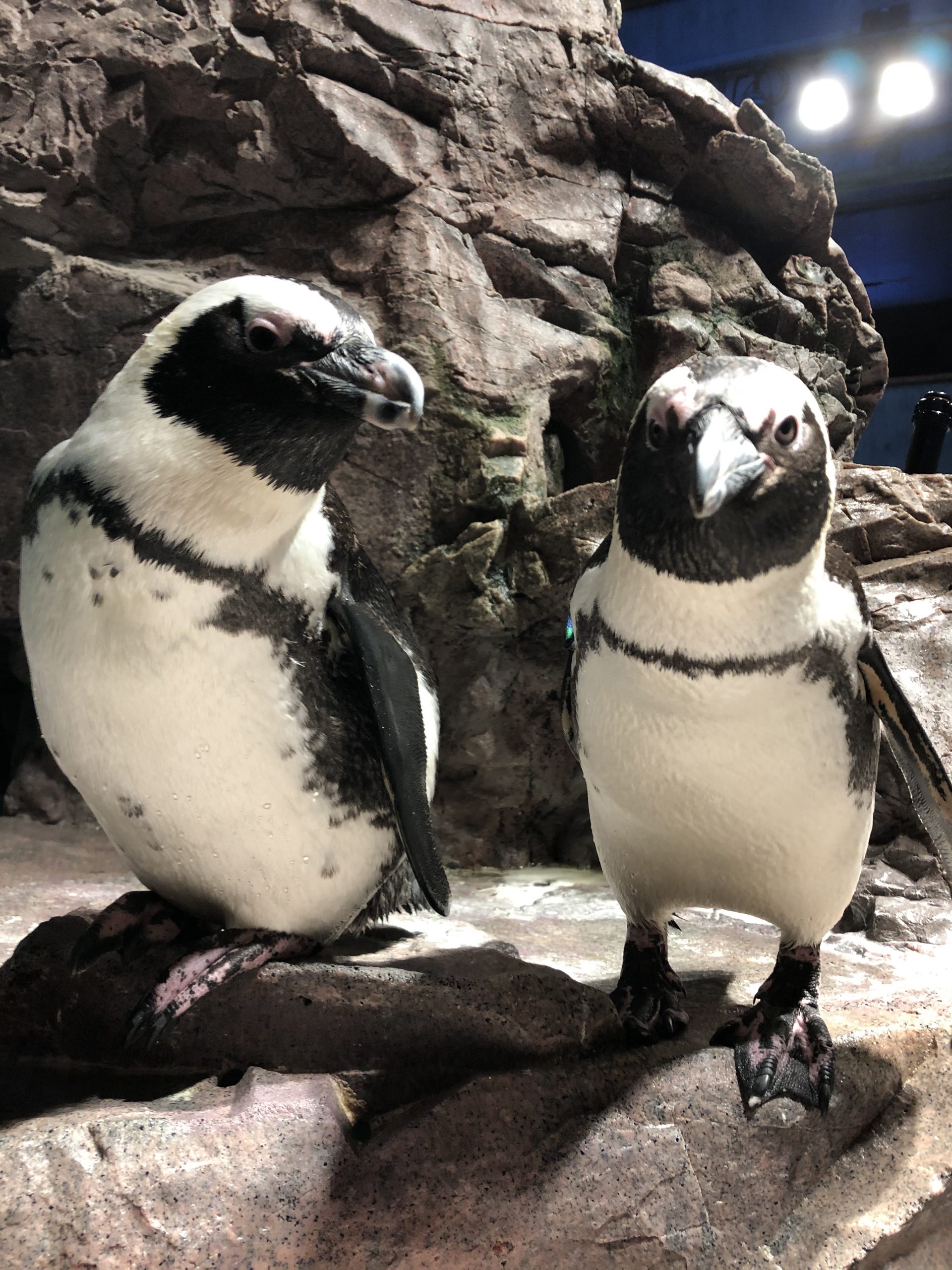
Pikkewynne & Apollo
BY EMILY L., PENGUIN AQUARIST
Pikkewynne and Apollo are sisters who are most frequently seen together. Both hatched in 2016 and will turn five this June. Pikkewynne is three days older than her sister and is the bolder one of the two. She likes to explore different islands and is on the hunt to find a mate. Apollo is a sweet girl that is usually found at her sister’s side or at her favorite territory.
While most African penguins lay one to two eggs a breeding season, most times the second chick does not survive due to the lack of resources. SANNCOB takes in hundreds of abandoned chicks each year to hand-raise and re-release back into their colony. Breeding season has already started in parts of African penguin territories and SANNCOB is on the job.
Terhalten
BY MATT S., PENGUIN AQUARIST
Terhalten is a very easy-going southern rockhopper penguin and a female bird that paired up with another female. Her mate is named Chrysocome. Same-sex penguin pairings have occurred at the Aquarium before and occur in their natural habitats, as well.
Terhalten is named after Isla Terhalten, named after Dutch captain Johan Ter Halte who first discovered it aboard his ship the Mauritius. Tucked away within the Tierra del Fuego archipelago, this island is one of many in the specific region that these birds call home. These islands have perfect conditions for southern rockhoppers, which is why we don’t see them inhabit more areas of coastline. The temperature is just right, not too hot and not too cold. Unfortunately, climate change can have devastating effects on these temperatures and cause populations to become displaced. Thankfully, it is not too late, and climate change IS something we as humans can affect!

